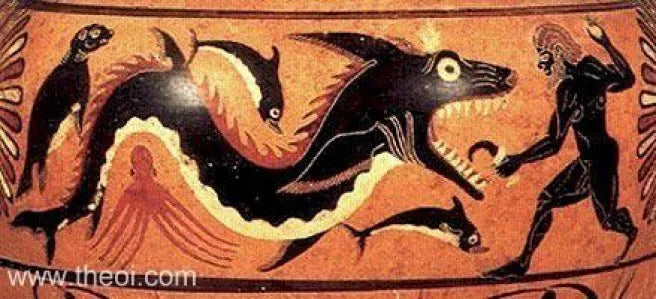Sharks have long captured the imagination of people across the globe, appearing in myths, folklore, and legends from diverse cultures. These powerful creatures are often depicted as symbols of strength, protection, and danger, reflecting humanity’s deep connection with the ocean. From Polynesian deities to Hawaiian guardian spirits and European sea monsters, sharks play significant roles in storytelling traditions. This blog explores some of the most fascinating shark myths and legends from around the world.
Polynesian Mythology: The Sacred Role of Sharks
In Polynesian cultures, sharks are often revered as powerful spirits and guardians of the sea. Many stories depict them as divine beings with the ability to protect or punish humans.
1. The Legend of Dakuwaqa (Fiji)
In Fijian mythology, Dakuwaqa is a shark god and protector of fishermen. According to legend, Dakuwaqa once tried to invade the island of Kadavu but was stopped by a powerful octopus, who ultimately forced him to become a guardian spirit. Today, many Fijians believe that Dakuwaqa watches over sailors and fishermen, ensuring their safety in the ocean.
2. Kamohoali’i: The Shark God of Hawaii
Hawaiian mythology tells of Kamohoali’i, a benevolent shark god who guides lost sailors to safety. Kamohoali’i is said to be the brother of the volcano goddess Pele and is deeply respected among native Hawaiians. Many stories describe how he could transform between human and shark form, using his powers to help those who respected the ocean and punish those who disrespected marine life.
Sharks in Asian Folklore
In various Asian cultures, sharks are often associated with supernatural abilities and warnings of danger.
3. The Naga of Thailand
In Thai folklore, the Naga is a mythical sea serpent often associated with sharks and other aquatic creatures. Some legends describe the Naga as a guardian of the seas, while others depict it as a creature that can summon storms or bring luck to fishermen.
4. The Japanese Samebito
Japanese folklore tells of the Samebito, a mysterious shark-like yokai (supernatural being). The Samebito is often described as a part-human, part-shark creature with green eyes and sharp teeth. One popular tale tells of a kind-hearted Samebito who wept tears of jewels, symbolizing themes of compassion and transformation.
Sharks in European and Caribbean Legends
Sharks have been both feared and respected in European and Caribbean folklore, often appearing as ominous creatures with supernatural powers.
5. The Carcharodon of Greek Mythology
The ancient Greeks told stories of Carcharodon, a great sea monster resembling a massive shark. Some believe this myth influenced later legends of the megalodon. In Greek literature, Carcharodon was said to guard hidden treasures beneath the waves and was sometimes associated with Poseidon, the god of the sea.
6. The Lusca of the Caribbean
In Caribbean folklore, the Lusca is a terrifying half-shark, half-octopus sea monster that lurks in the blue holes of the Bahamas. The creature is believed to attack unsuspecting swimmers and drag them into the depths. While the legend may be exaggerated, some scientists speculate that the myth originated from real sightings of giant squids or large sharks in the region.
Sharks in Indigenous Australian and African Mythology
Sharks also play significant roles in Indigenous Australian and African cultural traditions.
7. The Bunjil of Aboriginal Australian Mythology
Aboriginal Australians have long revered sharks as totemic beings. Some groups tell stories of Bunjil, a powerful ancestral spirit who shaped the land and sea. In some versions, Bunjil takes the form of a shark, symbolizing wisdom, guidance, and respect for nature.
8. The Zulu Inkanyamba
The Zulu people of South Africa have myths about Inkanyamba, a serpent-like creature often associated with sharks and other powerful sea animals. Inkanyamba is believed to control storms and water currents, representing the raw power of the ocean.
Modern Interpretations and Conservation Themes
Despite their historical roles in mythology, modern shark narratives often portray them as villains in media and pop culture. However, many conservation efforts today aim to shift this perception by highlighting the importance of sharks in marine ecosystems. Understanding the myths and folklore surrounding sharks can help bridge cultural perspectives and encourage greater respect for these vital ocean predators.
Conclusion: The Timeless Presence of Sharks in Mythology
Sharks have long been woven into the myths and legends of cultures around the world. Whether as divine protectors, fearsome monsters, or wise guardians, these creatures continue to inspire awe and respect. By studying these myths, we gain insight into humanity’s deep connection with the ocean and the importance of preserving shark populations for future generations. As we continue to learn more about these fascinating predators, it’s essential to move beyond fear and embrace a more balanced understanding of their role in the natural world.
